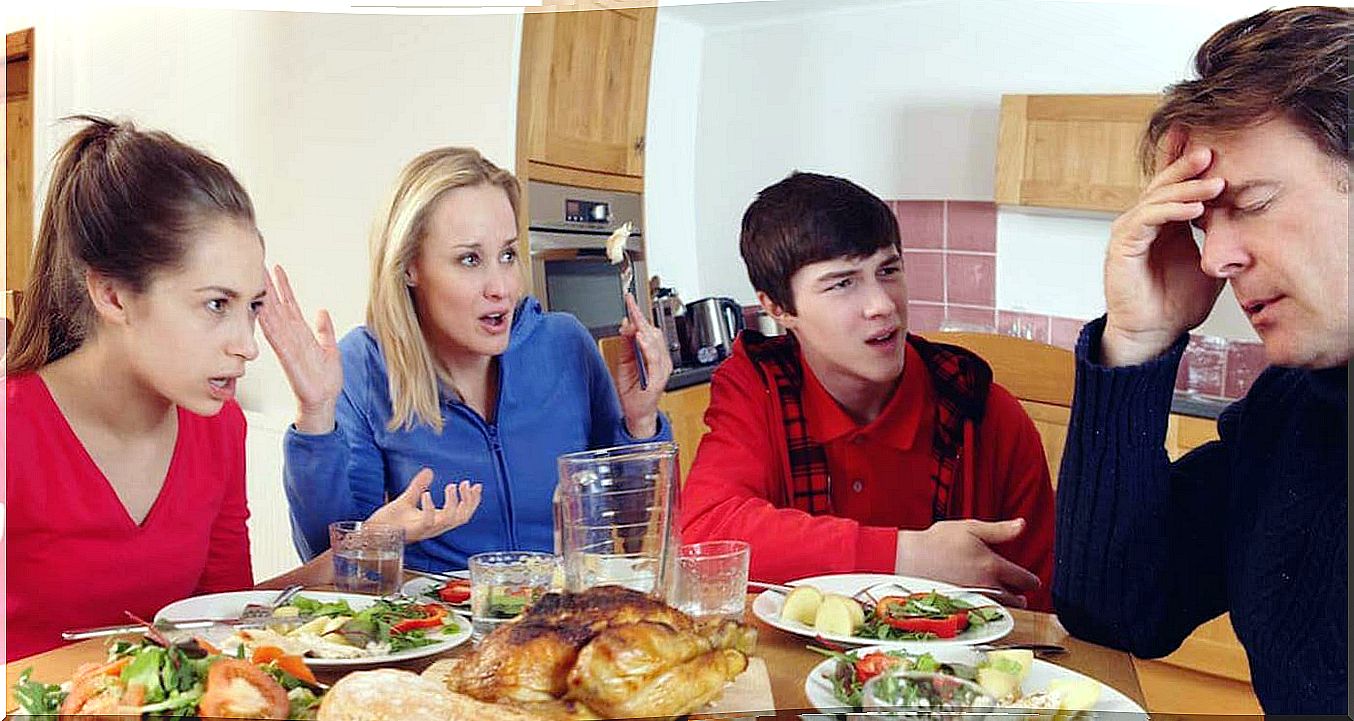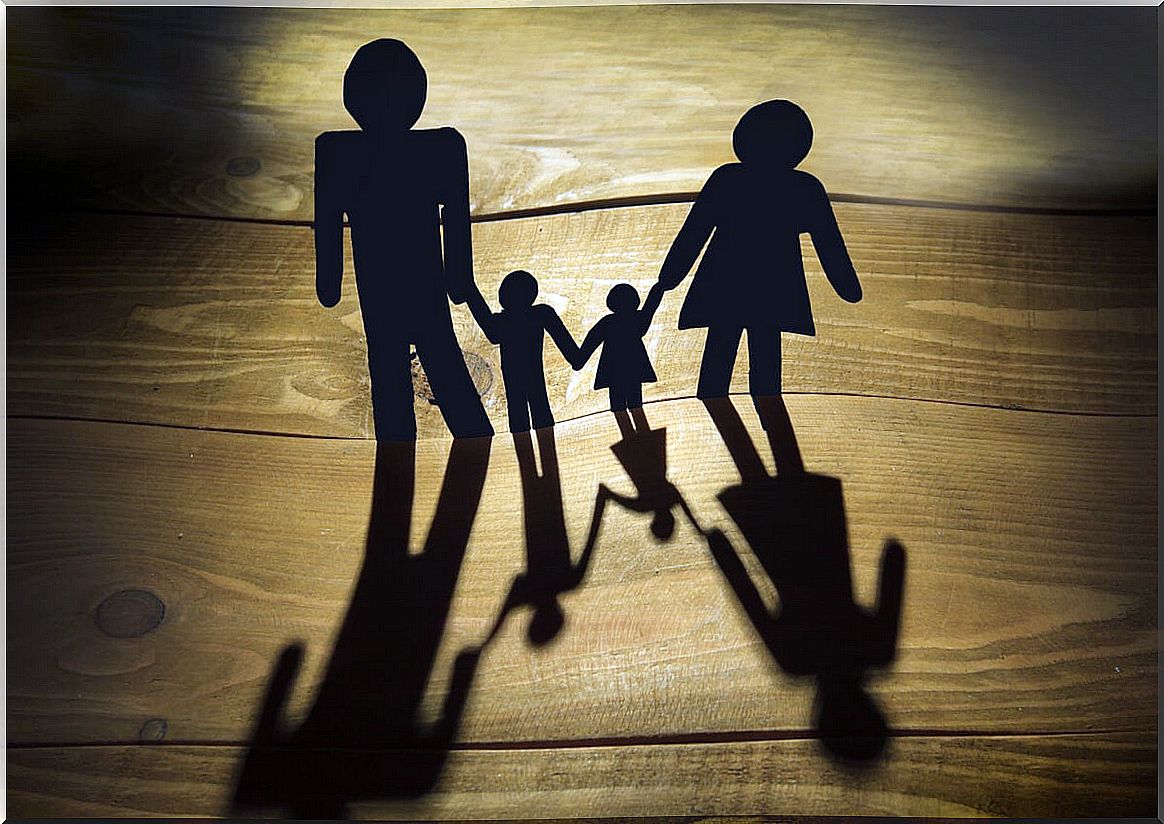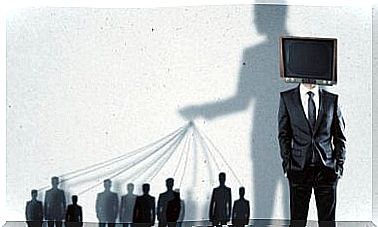The 12 Rules Of A Dysfunctional Narcissistic Family

There are several dynamics that build the foundations of a dysfunctional narcissistic family. These are behaviors in which the parent figure is the only center of power and attention. The education and upbringing of children is exclusively oriented to satisfy the needs of the first ones so that, little by little, an environment based on manipulation, unhappiness and also neglect can be built.
These scenarios are factories of absolute emotional suffering. Likewise, we cannot ignore one aspect: growing up in a dysfunctional environment orchestrated by behaviors based on submission and psychological burnout has a great psychological impact. Many of these children come of age under the shadow of trauma orchestrated during those childhood years.
In fact, it is very common for narcissistic families to be defined as small sects, groups that are psychologically exhausted for years, leaving serious consequences in the short and long term…

The Rules of a Dysfunctional Narcissistic Family
Many people go to psychological therapy to discover that their depression, generalized anxiety disorder, or post-traumatic stress disorder is the effect of a dysfunctional narcissistic family. Because the truth is, when you grow up in a harmful family environment, you’re not always aware that these figures follow a narcissistic pattern.
The only thing you notice is the constant violation, the lack of affection, the emotional distance and the impact of the criticism that embarrasses and destroys. We also have a lot of scientific documentation that talks about this problem. Surveys like those carried out in
On average, in these family nuclei, the narcissistic figure is exercised by the father. The entire dynamic of manipulation, control and psychological submission falls on this figure. Generally, the other members always act in accordance with the duties and needs of the parents, completely neglecting themselves.
So let’s look at the rules of a dysfunctional narcissistic family.
1. Take over and accept everything (fear of disapproval)
The engine that drives these familiar scenarios is fear and submission. The narcissist (or narcissists if both parents are) sets the guidelines and mandates. Nobody can get out of these lines, you have to accept everything they say, order or think. It is mandatory, for example, to have the same opinions, the same values, adjust 200% to the family narrative…
Therefore, what defines children in these situations is the fear of disapproval, of not being what the narcissist wants.
2. Worship the narcissist (your needs don’t matter)
Research works such as those carried out at the University of Wollongong, Australia, remind us that the narcissistic personality is defined by very specific traits. They show pathological greatness combined with great vulnerability. This means that they need constant reinforcement to be validated, admired…
Thus, in the environment of a dysfunctional narcissistic family, only the narcissist’s needs will matter. Those of others will be in second place.
3. Don’t show weakness, let alone your feelings
Make no mistake, don’t show fallibility, and most importantly, don’t you dare show your emotions. Narcissists will not hesitate to ridicule and shame you for it, for every tear, for every mistake made… They are skillful boycotters of self-esteem.
4. You will take the blame for everything
One of the traits of the dysfunctional narcissistic family is the projection of guilt. Whenever the narcissistic figure (or figures) does poorly in some respect, such as work, she will shift the responsibility onto others. It is harmful and clearly destructive behavior that has serious consequences.
5. The dysfunctional narcissistic family and self-deception
“Our family is the best, others are irresponsible and false.” These types of verbalizations are a constant in environments dominated by a narcissist. They often highlight the virtues that define them (all false), thus managing to convince their children that their house is the best in the world.
6. There is no love for everyone, so there will be “favorites”
The narcissistic figure is the focus towards which all attention must be directed. The needs, desires and opinions of others do not matter, only the figure who holds power in that family nucleus matters. Therefore, another recurrent factor is the lack of affection, healthy attachment, validation and recognition of many of the members that make up that household.
It is common for the narcissist to have a favorite: a golden child. They are those children to whom concessions and praise are shown, thus discriminating against others. However, this favorite child carries on his shoulders the obligation to fulfill all the expectations of the narcissist, and this, too, is a notable source of suffering.
7. Keeping up appearances
Nobody knows what really happens inside a house. There are families that seem to be happy and a clear example of harmony, and so does the dysfunctional narcissistic family. Few would guess the wear dynamics that exist between four walls.
8. Anger (externalized or repressed) is a constant in the dysfunctional narcissistic family
A narcissist is a frustrated person who needs the attention of others to strengthen his image. However, he is rarely satisfied and this feeling, this anger, ends up being projected onto the other members of the family.
On the other hand, children also silently build up the same anger. The unhappiness and anger experienced by each experience and submission accumulate and are often even somatized.
9. Denial: nothing that happens is problematic
One of the reasons someone who lived in a dysfunctional narcissistic family ended up needing psychological help is that, over the years, they assumed that everything they experienced was normal. The abuse, criticism, humiliation, emotional manipulation and the climate of fear condensing every corner of the house were seen as commonplace. Besides, it was something to be hidden, silenced and denied.

10. You will have no identity or initiative
You will be prevented from having your own ideals and values. You will have big problems building your identity and you will lack initiative. Because narcissistic families are psychological prisons based on submission and annulment.
11. Some family members will inherit the narcissistic personality
This is a fact that occurs very often: some children raised by narcissistic parents end up inheriting (or modeling) this same personality. Others, on the other hand, when the time comes, will try by all means to distance themselves from that familiar scene.
12. Leaving a dysfunctional narcissistic family is not easy, but in the end, you will make it
The dysfunctional narcissistic family operates with the same psychological mechanisms as a sect. They mentally nullify people and make them believe they are nothing without them. Mental dependency, fear and indecision make it difficult for these children to become independent.
However, it is a vital necessity to separate from those harmful bonds that do not allow to grow, that overwhelm and nullify personalities. So if you’re in this situation right now, don’t hesitate to ask for help. There are good professionals who can advise us and offer resources, support and action mechanisms.









